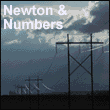forum
library
tutorial
contact

Musings on the Nature of Time
by Dick DorworthIdaho Mountain Express 5/5/99
|
the film forum library tutorial contact |

|
Musings on the Nature of Timeby Dick DorworthIdaho Mountain Express 5/5/99 |
"For everything its season, and for every activity under heaven its time."
"When your mind is wandering about elsewhere you have no chance to express yourself. But if you limit your activity to what you can do just now, in this moment, then you can express fully your true nature . . ."
As a practical matter, clocks and calendars regulate the everyday life of most of mankind around the sequence of events we call time; but practicality and essential reality are not always on the same schedule, as the old adage "Timing is everything" points out.
Time is a concept, not a fixed reality, as relativity theory describes; but many people who do not dwell on or care about theory have experienced time slowing down during the focused action of crucial events and speeding up if those same events get an eyeblink out of focus.
Time can be viewed as the primitive ability to distinguish between which of two events occurred earlier and which later, or the more sophisticated consciousness of a present moment continually transforming into a remembered past and an anticipated future. In this latter assessment, time is invaluable, a priceless, ever-changing experience that can never be relived, returned or altered.
Time can also be conceived as a commodity to be bartered and traded and consumed like pork bellies, or a storehouse to be filled to the rafters with the toys of experience or the juicy fruits of labor.
Scientists have identified such natural regulators as what are called "biological clocks" governing aging and the rhythms of behavior, circadian cycles governing daily temperature and metabolism, and electrical rhythms in the human brain, the most prominent known as "alpha rhythms"; but scientific efforts to locate a specific area of the brain that controls man's sense of time have been unsuccessful. The concept of measured time is, thus, a human construct, a nifty piece of conceptual engineering.
Any measurement of time, which is not the same thing as a sense of time, is ultimately a matter of observing and counting the cycles of some regularly occurring natural phenomenon, the rotation of the earth on its axis approximately every 24 hours being one, and then breaking down that cycle into accurate fractions like hours, minutes and seconds. For the pragmatic purposes of man's day-to-day activities, the familiar systems of measuring time (solar time, ephemeris time) are easily accurate enough; but even the ultimate machine of time measurement, the atomic clock, will be inaccurate by about one second over thousands of years.
The work of Einstein and others showed that time is relative to the observer, causing the view of time as an independent entity to give way to the concept that space and time are intertwined and inseparable. Ultimately, it seems to me, the human concept of time is a mystery. Marshall McLuhan wrote, "For tribal man space was the uncontrollable mystery. For technological man it is time that occupies the same role."
No one, including Einstein and Stephen Hawking have deciphered that mystery, though those two have probably penetrated deeper than anyone else; but that enigma raises some pertinent and interesting questions for personal contemplation that are neither theoretical nor outside the curiosity of anyone who has ever wondered about the life experience of another.
A man late for an appointment driving down a street through traffic, talking into a cell phone pinched between his shoulder and ear, one hand on the steering wheel, the other jotting notes into a notebook on his knee, the car CD blaring, doesn't have enough time.
A woman in childbirth labor has an abundance of time.
Michael Jordan going to the basket had just the right amount of time.
Shunryu Suzuki, the Zen master quoted above, worked a lifetime to experience all time in the present moment, all the time.
A 10-year-old child and an 80-year-old man sharing a picnic lunch in a park on a sunny spring day are not having the same experience of time, though on the clock they are living in the exact same time.
Rabindranath Tagore wrote, "The butterfly counts not months but moments / and has time enough."
What is time? Where does it come from? Where does it go? What does it mean? What is the significance of what we do and do not do with our own time?
Who can answer such questions?
I don't know, but I like these timeless words by Ed Buryn: "We say that time is money, meaning both are valuable. Both are a form of power. Usually, there is a reciprocal relationship between them; that is, abundance of money seems to go along with a shortage of time, and abundance of time with shortage of money. Money is the wealth of the materialist, and works miracles in the realm of the physical. Time is the wealth of the pilgrim, and works miracles in all realms."
learn more on topics covered in the film
Dick Dorworth
Musings on the Nature of Time
Idaho Mountain Express - May 5, 1999
see the video
read the script
learn the songs
discussion forum
